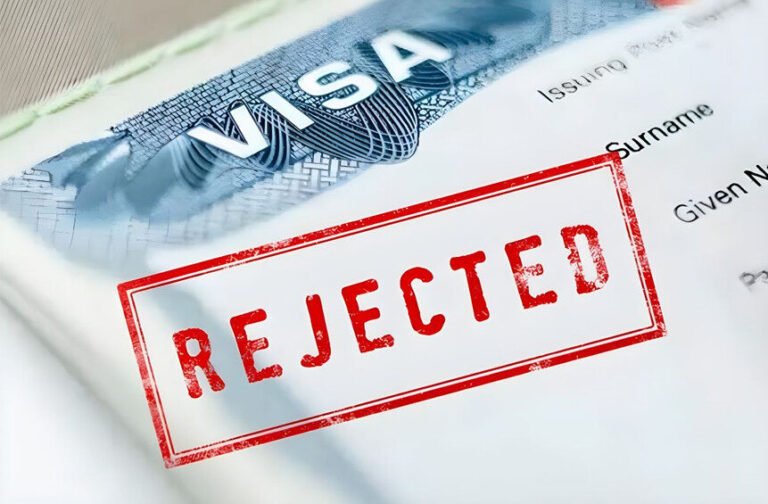Study Abroad Application Mistakes to Avoid in 2026
Study Abroad Application Mistakes to Avoid in 2026
As we approach 2026, the landscape of international education continues to evolve, becoming increasingly competitive. Each year, thousands of talented students see their study abroad dreams derailed by preventable application errors. This comprehensive guide exposes the most common study abroad mistakes 2026 applicants make and provides actionable strategies to avoid them.
Based on analysis of thousands of applications and consultations with admissions officers from top universities worldwide, we've identified the critical pitfalls that sabotage otherwise strong candidates. Whether you're targeting the USA, UK, Canada, Australia, or Europe, understanding these application mistakes to avoid could mean the difference between acceptance and rejection.
Table of Contents
- Timing and Planning Mistakes
- University Research Mistakes
- Application Document Mistakes
- Statement of Purpose Mistakes
- Letter of Recommendation Mistakes
- Standardized Test Mistakes
- Visa Mistakes for Study Abroad
- Financial Planning Mistakes
- Special Considerations for Indian Students
- Study Abroad Application Checklist 2026
- Frequently Asked Questions
- Additional Resources
Timing and Planning Mistakes
One of the most common study abroad mistakes 2026 applicants make involves poor timing and inadequate planning. Starting late or mismanaging deadlines can compromise your entire application strategy, regardless of how strong your profile might be.
Critical Timing Mistakes
- Starting too late: Beginning applications just 2-3 months before deadlines
- Underestimating preparation time: Not accounting for test preparation, document collection, and essay writing
- Missing early decision/action deadlines: Overlooking advantageous application rounds
- Last-minute recommender requests: Asking for LORs with insufficient notice
- Ignoring scholarship deadlines: Applying for financial aid after deadlines have passed
Ideal Application Timeline for 2026
To avoid these application mistakes to avoid, follow this optimized timeline:
- 12-18 months before: Research universities, take diagnostic tests, begin test preparation
- 9-12 months before: Take standardized tests, identify recommenders, draft application essays
- 6-9 months before: Request transcripts, finalize recommenders, complete application drafts
- 3-6 months before: Submit applications, apply for scholarships, prepare for interviews
- 1-3 months before: Complete visa applications, arrange accommodation, finalize finances
The EducationUSA five-step process provides an excellent framework for timing your application preparation effectively.
University Research Mistakes
Inadequate university research represents another category of critical study abroad mistakes 2026 applicants frequently make. Choosing universities based on superficial factors rather than proper fit can significantly reduce your admission chances and satisfaction with your final choice.
University Selection Errors
- Rankings obsession: Choosing universities solely based on overall rankings
- Ignoring program-specific strength: Not researching department reputation in your field
- Overlooking fit factors: Neglecting location, culture, class size, and teaching style
- Unbalanced list: Applying only to reach schools without safety options
- Copying others' choices: Following friends' university selections without personal research
Effective University Research Strategy
To avoid these research-related application mistakes to avoid, implement a systematic approach:
- Identify your priorities: Academic programs, location, cost, career outcomes, campus culture
- Research program strength: Faculty credentials, research opportunities, industry connections
- Evaluate admission requirements: Average test scores, GPA, prerequisite courses
- Consider practical factors: Cost of living, climate, part-time work regulations
- Create balanced list: 2-3 dream schools, 3-4 match schools, 2-3 safety schools
The QS University Guide to choosing the right university offers comprehensive guidance on making informed selection decisions.
Get Free CounsellingApplication Document Mistakes
Application document errors represent some of the most easily preventable yet surprisingly common study abroad mistakes 2026 applicants make. Incomplete, inaccurate, or poorly prepared documents can immediately disqualify otherwise strong applications.
Document Preparation Errors
- Incomplete transcripts: Missing mark sheets or degree certificates
- Incorrect translations: Using unprofessional translation services
- Missing documentation: Overlooking required financial statements or identification
- Format inconsistencies: Inconsistent date formats, name spellings, or document sizes
- Poor quality scans: Blurry, unreadable, or improperly cropped documents
Document Preparation Checklist
To avoid document-related application mistakes to avoid, follow this comprehensive preparation guide:
Essential Document Checklist
- ✓ Academic transcripts (all years/semesters)
- ✓ Degree certificates/diplomas
- ✓ Standardized test score reports
- ✓ Passport copy (valid for at least 6 months beyond program start)
- ✓ English proficiency test scores (if required)
- ✓ Statement of Purpose
- ✓ Letters of Recommendation (typically 2-3)
- ✓ Resume/Curriculum Vitae
- ✓ Financial documentation
- ✓ Portfolio (for design/arts programs)
The British Council application guide provides detailed information on document requirements for UK universities.
Statement of Purpose Mistakes
The Statement of Purpose represents one of the most critical yet frequently mishandled application components. SOP errors constitute some of the most damaging study abroad mistakes 2026 applicants make, as they directly impact how admissions committees perceive your motivation and fit.
Common SOP Errors
- Generic content: Using template language that could apply to any program
- Autobiographical approach: Chronological life story without strategic focus
- Overemphasis on childhood: Focusing on early interests rather than recent development
- Neglecting "why this program": Failing to demonstrate specific knowledge of the university
- Listing without explaining: Mentioning achievements without context or reflection
- Inappropriate tone: Being either too casual or excessively formal
SOP Success Strategy
A powerful SOP should tell a cohesive story that connects your past experiences with future goals while demonstrating why the specific program is the ideal next step. Include specific faculty members you want to work with, relevant research projects, and unique program resources that attract you.
According to UC Berkeley's graduate division, the most effective SOPs demonstrate clear goals, relevant preparation, and specific reasons for choosing their program.
Letter of Recommendation Mistakes
Letters of Recommendation represent external validation of your abilities, yet many applicants make critical errors in how they select and prepare their recommenders. These LOR missteps rank among the most common study abroad mistakes 2026 applicants need to avoid.
LOR Selection and Preparation Errors
- Choosing prestigious but unfamiliar recommenders: Selecting high-profile individuals who barely know you
- Last-minute requests: Not giving recommenders sufficient time (less than 3-4 weeks)
- Inadequate preparation materials: Failing to provide resume, SOP draft, and specific talking points
- Assuming positive responses: Not confirming that recommenders can write strong letters
- Poor communicaton: Not providing clear deadlines or submission instructions
Optimal LOR Strategy
To avoid LOR-related application mistakes to avoid, implement this proven approach:
- Select strategically: Choose recommenders who know you well and can speak specifically to relevant qualities
- Request early: Approach recommenders 2-3 months before deadlines
- Prepare thoroughly: Provide comprehensive packet including resume, transcripts, SOP draft, and specific achievements
- Follow up respectfully: Send gentle reminders 2-3 weeks before deadlines
- Show appreciation: Send thank you notes and update recommenders on outcomes
The UC Berkeley career center guide offers excellent advice on securing strong academic recommendations.
Get Free CounsellingStandardized Test Mistakes
Standardized test preparation and scheduling errors represent another category of preventable study abroad mistakes 2026 applicants frequently encounter. Poor test strategy can undermine an otherwise strong academic profile.
Test Preparation Errors
- Insufficient preparation time: Underestimating the hours needed for significant score improvement
- Poor test timing: Taking tests too close to application deadlines
- Ignoring section strengths: Not focusing preparation on weakest areas
- One-attempt approach: Not planning for potential retakes
- Score reporting delays: Not accounting for official score delivery timelines
Optimal Test Preparation Strategy
To avoid test-related application mistakes to avoid, follow this strategic approach:
- Start early: Begin preparation 6-9 months before applications
- Take diagnostic tests: Identify baseline scores and improvement areas
- Create study schedule: Dedicate consistent, focused study time each week
- Schedule strategically: Plan first attempt 3-4 months before deadlines, allowing time for retakes
- Practice under test conditions: Simulate actual test environment during practice sessions
The Official ETS TOEFL tips and GRE preparation resources offer authoritative guidance for test preparation.
Visa Mistakes for Study Abroad
Visa application errors represent some of the most heartbreaking study abroad mistakes 2026 applicants can make, as they often occur after receiving university acceptance. Understanding common visa mistakes abroad applications is crucial for successful international study.
Common Student Visa Errors
- Insufficient financial documentation: Not demonstrating adequate funds for entire program
- Inconsistent information: Discrepancies between visa application and university application
- Poor interview preparation: Not practicing common visa interview questions
- Last-minute application: Applying too close to program start date
- Inadequate documentation: Missing required forms, photographs, or supporting documents
Country-Specific Visa Considerations
Different countries have unique visa requirements and common pitfalls:
- USA (F-1 Visa): Strong ties to home country demonstration, SEVIS fee payment, maintenance of full-time status
- UK (Student Visa): CAS document, healthcare surcharge, financial requirement evidence
- Canada (Study Permit): Proof of funds, acceptance letter, sometimes biometrics requirement
- Australia (Student Visa): Genuine temporary entrant requirement, OSHC health insurance, financial capacity proof
- Germany (Student Visa): Blocked account, university admission, sometimes German language proof
The U.S. Department of State student visa information provides official guidance for applicants to American institutions.
Financial Planning Mistakes
Financial miscalculations represent some of the most stressful study abroad mistakes 2026 applicants encounter. Underestimating costs or overestimating funding opportunities can create significant challenges during your international education journey.
Common Financial Errors
- Underestimating total costs: Focusing only on tuition while ignoring living expenses
- Overestimating scholarship opportunities: Assuming generous funding will be easily available
- Poor currency planning: Not accounting for exchange rate fluctuations
- Inadequate health insurance: Underestimating medical costs in foreign healthcare systems
- Emergency fund neglect: Not planning for unexpected expenses or travel emergencies
Comprehensive Budget Planning
To avoid financial application mistakes to avoid, create a detailed budget that includes:
Study Abroad Budget Components
- ✓ Tuition and university fees
- ✓ Accommodation costs (housing, utilities)
- ✓ Food and groceries
- ✓ Health insurance and medical expenses
- ✓ Transportation (local and international)
- ✓ Books and academic materials
- ✓ Personal expenses and entertainment
- ✓ Communication (phone, internet)
- ✓ Emergency fund (5-10% of total budget)
- ✓ Travel and exploration expenses
The International Student financial planning guide offers comprehensive advice on budgeting for study abroad.
Get Free CounsellingSpecial Considerations for Indian Students
Indian students face unique challenges in the study abroad process. Understanding these specific study abroad tips for Indian students can help navigate common pitfalls that particularly affect applicants from the Indian education system.
Common Mistakes by Indian Students
- Percentage to GPA confusion: Incorrectly converting Indian grading systems
- University reputation overemphasis: Assuming admissions committees know all Indian universities
- Backlog mismanagement: Not properly explaining repeated subjects or extended duration
- English proficiency overconfidence: Underpreparing for standardized English tests
- Cultural context gaps: Not explaining educational system nuances to international readers
Strategies for Indian Applicants
To maximize success, Indian students should:
- Provide context: Briefly explain your university's grading system and ranking
- Address backlogs proactively: Explain circumstances and highlight subsequent improvement
- Demonstrate English proficiency: Use SOP and interviews to showcase communication skills
- Research visa specifics: Understand country-specific financial documentation requirements
- Highlight unique perspectives: Leverage diverse Indian educational experiences as strengths
Indian Student Advantage
Indian students often possess strong quantitative skills, experience with diverse educational environments, and demonstrated ability to succeed in competitive systems. Frame these as strengths rather than assuming admissions committees will automatically recognize them.
The IDP India study abroad guide offers country-specific advice for Indian students considering international education.
Study Abroad Application Checklist 2026
A comprehensive application checklist is your best defense against the common study abroad mistakes 2026 applicants frequently make. Use this detailed checklist to ensure no critical component is overlooked in your preparation.
Complete Application Checklist
12-18 Months Before
- ✓ Research universities and programs
- ✓ Take diagnostic standardized tests
- ✓ Begin test preparation program
- ✓ Research scholarship opportunities
- ✓ Attend education fairs and webinars
9-12 Months Before
- ✓ Take first standardized tests
- ✓ Identify and approach potential recommenders
- ✓ Draft Statement of Purpose
- ✓ Prepare resume/CV
- ✓ Create application timeline
6-9 Months Before
- ✓ Request official transcripts
- ✓ Finalize recommenders and provide materials
- ✓ Complete application drafts
- ✓ Take additional tests if needed
- ✓ Begin scholarship applications
3-6 Months Before
- ✓ Submit applications before deadlines
- ✓ Complete all scholarship applications
- ✓ Prepare for interviews
- ✓ Follow up on recommendations
- ✓ Confirm application completeness
1-3 Months Before
- ✓ Apply for student visa
- ✓ Arrange accommodation
- ✓ Finalize financial arrangements
- ✓ Purchase health insurance
- ✓ Make travel arrangements
Frequently Asked Questions
What is the single biggest mistake students make in study abroad applications?
The most critical error is starting too late. Ideal preparation begins 12-18 months before application deadlines. Late starters compromise test preparation, essay quality, recommendation letters, and scholarship opportunities, significantly reducing admission chances.
How can I avoid visa rejection for study abroad?
To avoid visa mistakes abroad applications, ensure consistent documentation, demonstrate strong home country ties, provide comprehensive financial proof, prepare thoroughly for interviews, and apply well before your program start date. Country-specific requirements vary, so research meticulously.
What are the most common financial mistakes in study abroad planning?
Common financial errors include underestimating living expenses, not accounting for currency fluctuations, overestimating scholarship availability, neglecting health insurance costs, and failing to maintain an emergency fund. Create a detailed budget with 10-15% buffer for unexpected expenses.
How important are university rankings in the selection process?
While rankings provide useful reference points, overemphasizing them is a common mistake. Program-specific reputation, faculty expertise, research opportunities, career outcomes, and personal fit are often more important than overall institutional ranking.
What should Indian students specifically avoid in applications?
Indian students should avoid assuming admissions committees understand their educational system, not explaining grading scales or backlogs properly, underestimating English test preparation, and choosing recommenders based solely on position rather than detailed knowledge of their abilities.
When is the ideal time to take standardized tests?
Take first attempts 6-9 months before applications, allowing time for potential retakes. Final scores should be available 3-4 months before deadlines to ensure timely submission. Account for score reporting delays which can take 2-6 weeks.
Additional Resources
To further support your study abroad preparation and help avoid these study abroad mistakes 2026 applicants commonly make, we've compiled these valuable resources.
External Resources for Further Reading
- International Student Study Abroad Guide - Comprehensive resource for international education
- EducationUSA - Official U.S. Department of State network for studying in USA
- Study in Australia - Official Australian government resource
- Study in Canada - Official Canadian government resource
- Study UK - British Council official guide to UK education
Avoid These Costly Mistakes in Your 2026 Applications
Now that you understand the most common study abroad mistakes 2026 applicants make, you're equipped to navigate the application process more effectively. Remember that awareness of these application mistakes to avoid is your first defense against them.
For personalized guidance tailored to your specific profile and target programs, connect with our expert counselors who can help you develop a strategic approach to maximize your admission chances.
Get Free CounsellingThis comprehensive guide to study abroad mistakes 2026 applicants commonly make has covered critical errors in timing, research, documentation, SOP preparation, LOR management, testing, visa applications, and financial planning. By understanding these application mistakes to avoid and implementing the provided study abroad tips for Indian students, you can significantly improve your admission prospects. Use the detailed application checklist to ensure no component is overlooked, and be particularly mindful of country-specific visa mistakes abroad applicants frequently encounter.









